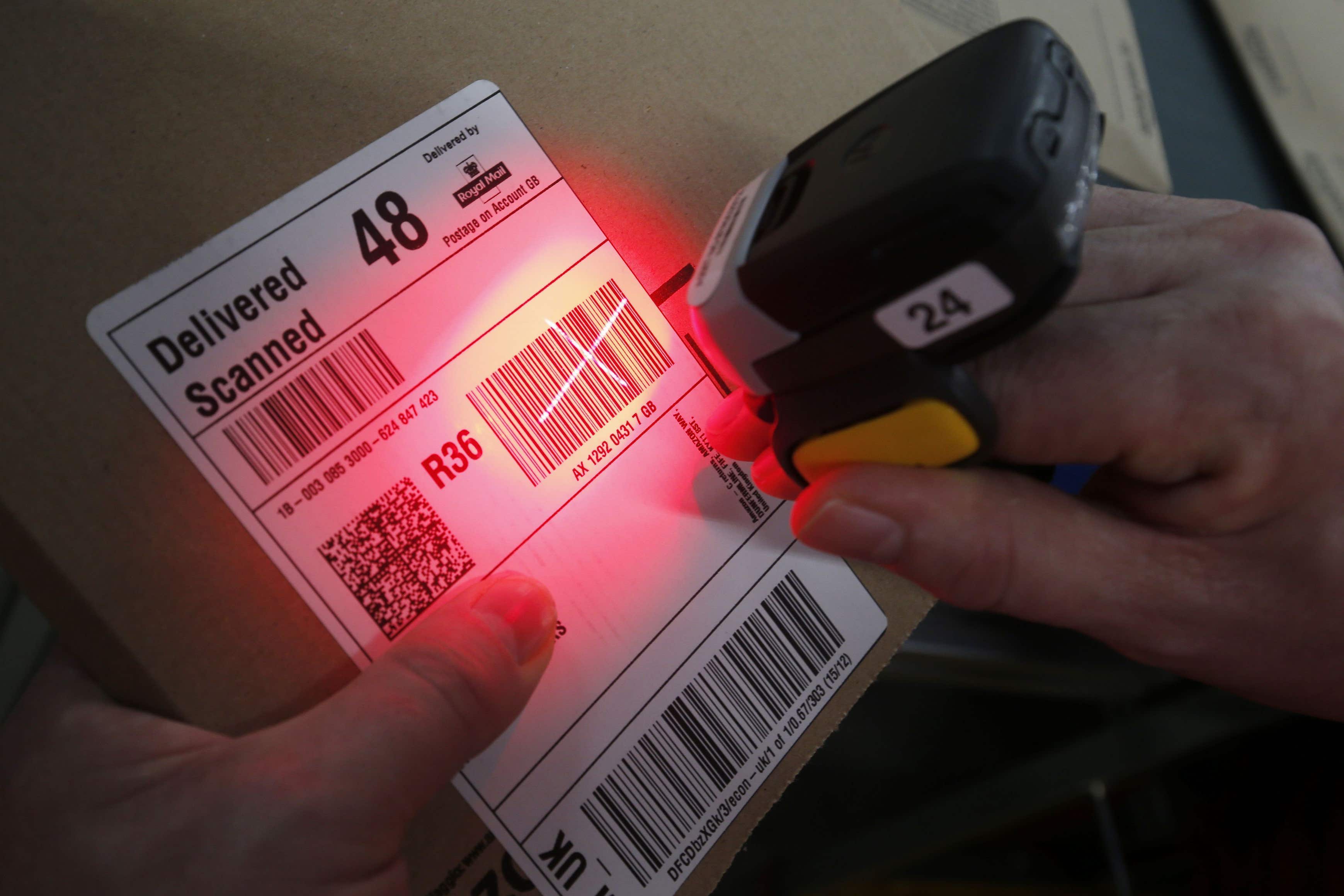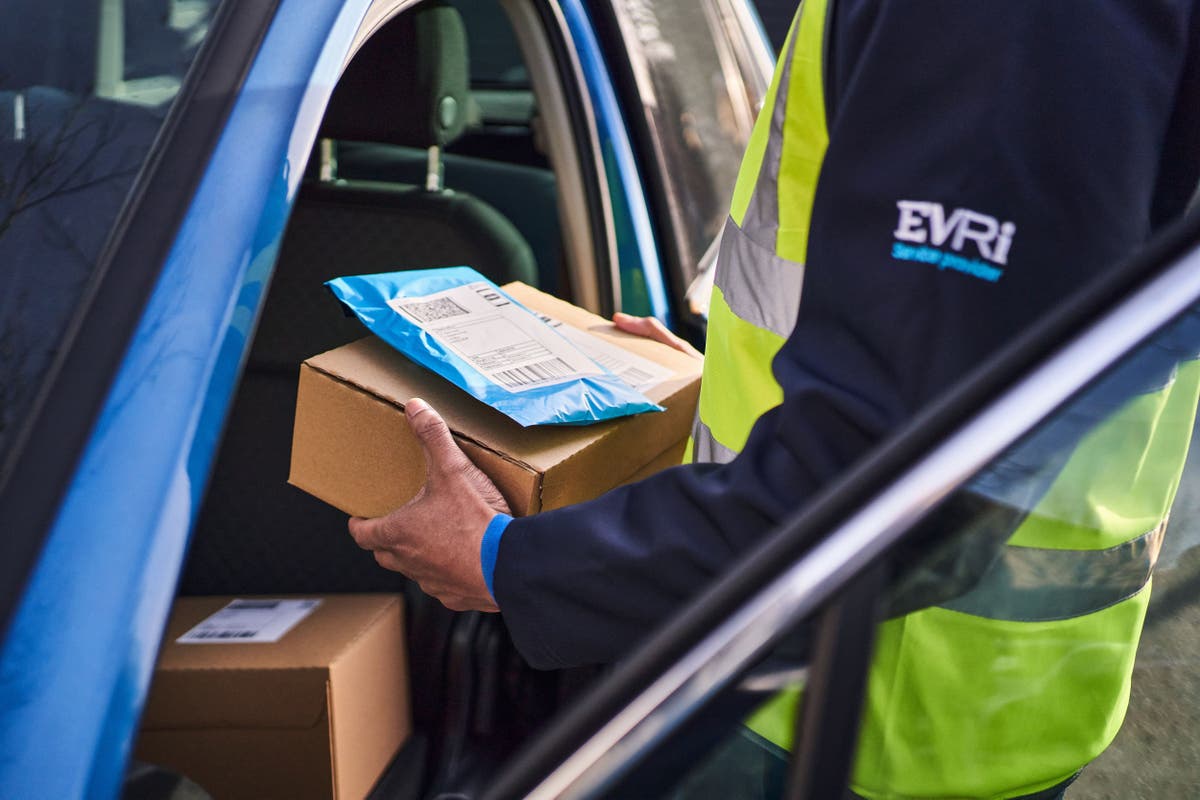How Evri became the UK’s most hated delivery company
Your support helps us to tell the story
This election is still a dead heat, according to most polls. In a fight with such wafer-thin margins, we need reporters on the ground talking to the people Trump and Harris are courting. Your support allows us to keep sending journalists to the story.
The Independent is trusted by 27 million Americans from across the entire political spectrum every month. Unlike many other quality news outlets, we choose not to lock you out of our reporting and analysis with paywalls. But quality journalism must still be paid for.
Help us keep bring these critical stories to light. Your support makes all the difference.
We’ve got your parcel.”
Have any four words in the English language ever had such power to strike fear into the heart of man? In fairness, it’s not the words themselves that spark this thrill of terror – it’s the four letters denoting who’s sent them. When your gaze drifts into the “From” column of your inbox and spots the name “Evri”, you know it’s already too late. Your parcel – and your fate – is in God’s hands now.
Or so goes the legend surrounding the courier. It’s not much of a stretch at this point to call Evri, formally Hermes UK, Britain’s most hated delivery company (the name change is particularly ironic given the suggestion from some quarters that this 2022 rebrand was merely to shake off the bad reputation associated with its previous moniker).
A new Ofcom report, published on 28 October, has revealed that, once again, Evri is at the bottom of the customer satisfaction leaderboard when it comes to handling complaints. According to the annual Post Monitoring Report, 39 per cent of Evri clients were dissatisfied compared to just 32 per cent who were satisfied. Though this is a marked improvement from 2023, Evri still trails behind its nearest competitor for shoddiest in show – Yodel was rated 31 and 38 per cent for dissatisfaction and satisfaction respectively. At the other end of the scale, Amazon’s dissatisfaction rating was less than half that of Evri’s at 15 per cent, while 56 per cent of customers were happy.
An Evri spokesperson said of the latest results: “2024 has been a year of significant investment and listening to our customers to improve our service. Our ambition is that every customer’s experience with Evri is a positive one. We recognise there remains more to do, but Ofcom found that we are making year-on-year improvements and our rising parcel volumes are proof that customers and retail clients are voting with their feet and trust us with their deliveries.”
Citizens Advice released its own league table towards the end of 2023. While this was a lot closer – “this year the difference between first and last place is smaller than ever,” reads the organisation’s conclusion – Evri still ranked last, with a score of two stars out of five based on its ratings across criteria including customer service, delivery problems, accessibility and trust.
A survey of users by online site Money Saving Expert, published in January 2024, saw Evri just pipped to the post by TNT. It scraped 16th place out of the 17 delivery providers analysed, with nearly half (48 per cent) of customers rating the service as “poor”.
Anecdotally, just bringing up the name “Evri” in company summons a torrent of horror stories more bloodcurdling than a Halloween frightfest thanks to their sheer, frustrating banality.
Take Pete, who waited in vain for two weeks for a video game to arrive. Once Evri finally came clean and admitted that the item had disappeared off the face of the earth, the company washed its hands of the whole business. “I requested a refund and they said, ‘no, you need to contact the supplier for that’,” he recalls. “I contacted Game and they said that, since Evri had lost it, it wasn’t their problem.” The meme of identical Spider-Mans pointing at each other springs to mind.
Stephen, meanwhile, had the classic experience of waiting in all day to receive a package, only to be informed he wasn’t actually there: “At 3.26pm, sitting NEXT TO MY FRONT DOOR, I receive an email: ‘Evri missed you for a delivery of a parcel. Your local courier tried to deliver your parcel today but you weren’t in.’ Oh? Wasn’t I?”
My own personal Evri tale reads like a Kafkaesque nightmare of red tape. I went to the local post office to pick up my parcel; the woman located it; unsuccessfully tried to scan it; and refused to pass it over. “They’ve put the wrong label on it,” she explained with a sigh. “I can’t log it in the system.”
“But…” Bewildered, I looked down at the parcel in her hands. “It’s right there… with my name on it…?”
“Sorry love. Nothing I can do. They’ll have to come and collect it, take it back to the depot, create a new label, redeliver it to us. Then you can have it.”
“Right. I see,” I said, quietly seething. But I didn’t see. I still don’t see.
Just bringing up the name ‘Evri’ in company summons a torrent of horror stories
Though many gripes concern vanishing parcels or inexplicably failed deliveries when customers were home, there are also those relating to the parcels themselves once they do arrive. Sometimes it’s the “where” that raises eyebrows: packages that get left in hedges, at the bottom of communal bins, at entirely the wrong address (“I had to go and lug a bedframe back from a completely different block of flats,” moans my colleague), or on the side of the street before subsequently being stolen. Browse Evri’s entries on customer reviews site Reviews.io, where it scores 1.1 stars out of five, and you’d be forgiven for thinking that parcels were intentionally delivered to anywhere but the listed address.
More disappointing still are the cases of packages damaged beyond repair – books that look like they’ve been attacked by a pack of rabid dogs, expensive bras dropped in puddles, ceramic and glassware cracked or shattered into multiple pieces.
And all that’s before you get to the Ring doorbell drama, where people have videoed eyebrow-raising behaviour. In 2022, footage went viral of an Evri delivery driver briefly pulling up in a van outside someone’s house and pretending to “attempt delivery” by taking a picture of the front door before driving off. Last month, an Evri employee was sacked after a woman caught him on doorbell cam allegedly attacking her dogs with a mop through the letterbox. “These actions are not the caring behaviour that we expect from our couriers and we have apologised wholeheartedly to the customer,” says a spokesperson. “Unfortunately, the courier’s hand was bitten when delivering to this property, however their reaction to this was inexcusable. We have a zero-tolerance approach to behaviour of this nature and have taken immediate steps to ensure that this courier will no longer deliver for us.”
Around this time last year, Evri even admitted it deserved the bad rep. Chief customer officer Chris Ashworth told the BBC’s Breakfast at the time: “We’ve obviously earned that reputation and we’ve got to work hard to turn it around.” Since then, the business has invested heavily in its service and operations: “Evri handles 730 million parcels a year with 99 per cent successfully delivered on time – and is committed to instilling a culture where every parcel matters,” a spokesperson tells The Independent. “We have invested £32m to develop our customer service options and improve the customer experience at the doorstep.”
Yet customer service still seems to be a particular bugbear for clients, with tales of frustrating AI chatbot conversations online. Call the phone line, and you’ll have to navigate the “virtual assistant” before there’s the remotest possibility of speaking to a flesh and blood human being. “You can’t speak to an actual person, the automated systems deliberately keep you in a holding pattern,” reads one review, while a second alleges: “Useless chatbot, calling them gives you an even less useful bot. No human interaction.”

It’s worth noting that, although Evri in particular often comes under fire, these issues are by no means unique to the courier formerly known as Hermes. Nearly all British delivery firms attract similar criticism; in its 2023 ranking, Citizens Advice noted the disappointing service across the board. “For the third time Citizens Advice’s parcels league table has uncovered that parcel companies deliver substandard service for consumers with no parcel company scoring above 2.75 stars out of a possible 5,” says the damning report. “The rate of parcel problems in particular remains incredibly high across the board and shows no sign of letting up.”
The organisation’s research found that more than 13 million people faced a delivery problem with the last parcel they had received in the previous month, while 43 per cent of consumers had experienced an issue when trying to resolve their problem.
Why is service so uniformly terrible? One potential reason couriers in the UK might be less than diligent is the job conditions. Drivers, who are usually self-employed, have frequently complained about flat rates of pay per parcel delivered.
In February last year, several Evri drivers, who asked to remain anonymous, spoke to the Manchester Evening News about their experiences, claiming they sometimes felt like “slaves”, and that morale was at rock bottom as employees had to work harder for less money and were in constant fear of having their rounds “slashed”.
“Craig”, who had worked for the company for years, claimed the job had got “progressively worse”, forcing him to work six days a week just to scrape by. “Richard” alleged that the pay was “awful” and that it was “the worst job I’ve ever done in my life but there is nothing else out there for us”. Both complained of having to spend the first hour of their shift out in the elements – sorting parcels and loading up vans – without earning a penny.
If I go and knock on someone’s door and they are not in and there’s nowhere for me to leave the parcel, I don’t get paid for that
Evri delivery driver
Time literally is money in this game, and the rules stipulating drivers only get paid when a parcel is “delivered” go some way to explaining why items might be handled without much care or left in strange places.
“If I go and knock on someone’s door and they are not in and there’s nowhere for me to leave the parcel, I don’t get paid for that,” Craig pointed out. “You pay for your own fuel as well, so you’ve lost money. That’s why you see drivers delivering them wherever they can, otherwise you’re just losing money.”
An Evri spokesperson said at the time: “We are unable to respond to anonymous allegations about specific disputes or even verify that these individuals work for Evri without their details.
“However, we can confirm that as our couriers are self-employed, they are able to choose the number of parcels they deliver and the time frame they do it … All our couriers earn in excess of the minimum wage after expenses such as fuel costs (the average is over £15 an hour) and this includes time for collection and redelivery. This is independently audited by the GMB Union.”
There are signs that things are improving – Evri’s customer satisfaction has leapt up by 6 per cent year on year according to the latest Ofcom figures, while dissatisfaction dropped by 7 per cent; earlier this month, the company announced a range of doorstep delivery initiatives for people living with a condition or impairment. “We have also launched a major three-year partnership with disability equality charity Scope, to work together to help disabled customers have a better parcel delivery experience,” says an Evri spokesperson.
In the meantime, customers are best sitting tight and practising patience when things occasionally go awry. Or perhaps accepting that the only way to really guarantee something turns up on time and intact is to buy it from – shock horror! – a bricks and mortar shop.

